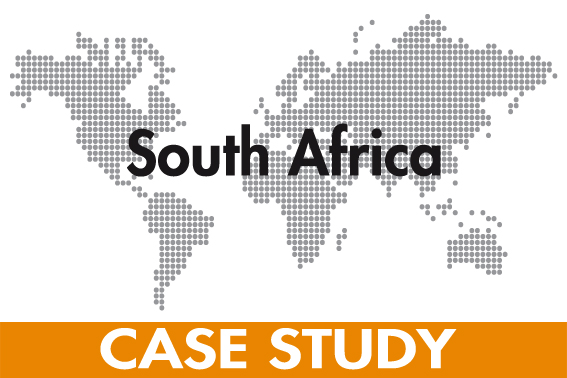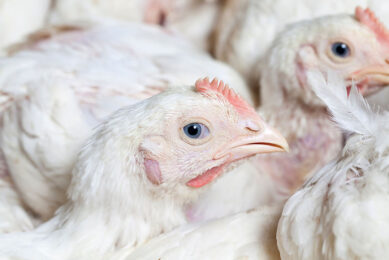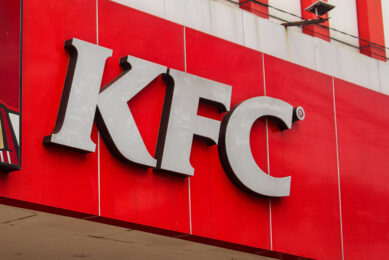Case Study: South Africa’s growing poultry consumption

Steady economic growth and increases in average income in South Africa has resulted in the rapid expansion of meat consumption over the past two decades. The country now consumes about 2.9 million tonnes of poultry, beef and pork meat per annum, with poultry meat consumption representing more than 60% of total meat consumption.
The consumption of poultry meat (of which most is broiler meat) increased by almost 80%, from 21.5 kg per person per year in 2000 to 38.5 kg per person per year in 2014. As poultry meat is relatively inexpensive and ubiquitous, it has grown to be the most important protein source in the diet of the majority of South Africans, a recent USDA GAINS report states.
While continued growth in meat consumption is projected in the coming decade, slower economic growth will result in moderate consumption growth relative to the past.
Projections for chicken meat consumption
According to the Bureau for Food and Agricultural Policy (BFAP), chicken meat consumption in South Africa is projected to increase by 38% over the next decade, compared to 60% through the past 10 years. This equates to about 700,000 tonnes of additional poultry consumption by 2024, surpassing 44 kg per capita.
Chicken is the cheapest source (in terms of R/kg) of meat in South Africa. However, in the past two years, the price of chicken meat increased in percentage terms more than that of lamb or beef, due to the increase the in import tariffs on chicken products and the sharp increase of feed costs.
Poultry production and import requirements
Local production of poultry, beef and pork is about 2.4 million tonnes and as a result, production needs to be complimented by imports. South Africa’s major trading partners of meat imports include Brazil, the Netherlands, the United Kingdom and Germany.
In value terms, South Africa’s poultry meat imports represent about 2% of world trade in poultry meat and 4% in quantity. South Africa imported 392,820 tonnes of poultry meat at a value of US$375 million in 2014, which is 5% more than the 389,440 tonnes imported in 2013.
Estimates suggest that poultry meat imports could increase by approximately 5% to reach 415,000 tonnes in 2015, with a weakening exchange rate hindering higher imports. Broiler meat accounts for about 90% of all poultry meat imports by South Africa, with the balance largely being turkey products.
Brazil is the most important trading partner for South Africa in terms of poultry meat, with a 43% market share of the import market. However, Brazil’s market share is declining and dropped from 52% in 2012 to 43% in 2014, as it struggles to compete with tariff free imports from the European Union.
More than 75% of Brazil’s poultry meat export basket to South Africa consists of mechanically deboned meat. The Netherlands is the second largest exporter of poultry meat into South Africa with 19% market share of the import market, growing from almost 0% market shares in 2010.
EU poultry exports
With the growth in poultry meat production in Europe, but a decline in poultry meat consumption, European Union countries are exploring new export markets, especially in Africa. The Netherland mainly exports frozen bone-in portions to South Africa and has the biggest (34%) market share in this category of poultry meat imports.
The United Kingdom is the third largest exporter of poultry meat into South Africa with a 11% market share and is followed by the Germany (6%) and Argentina (6%). The five largest importing countries supply almost 85% of South Africa’s imported poultry meat.
South Africa closed for US meat products
The South African meat market currently remains closed for products from the United States due to anti-dumping duties and unresolved sanitary restrictions.
US bone-in chicken has been affected by an anti-dumping duty put in place in 2000. In 2012, the anti-dumping duty was extended for another 5 years and was set at R9.40 per kilogram. In June 2015, representatives from the US and South African poultry industries met in Paris and agreed on a tariff rate quota of 65,000 tonnes of US bone-in broiler meat to enter South Africa without the anti-dumping duty. However, South Africa has not yet taken steps to place that agreement into force.
South Africa also maintains a zero tolerance protocol for specified strains of salmonella. The United States poultry industry has strongly asserted this requirement as a barrier to trade. To date, the issue is still lingering, keeping the United States out of the mechanically deboned market.
Join 31,000+ subscribers
Subscribe to our newsletter to stay updated about all the need-to-know content in the poultry sector, three times a week. Beheer
Beheer








 WP Admin
WP Admin  Bewerk bericht
Bewerk bericht